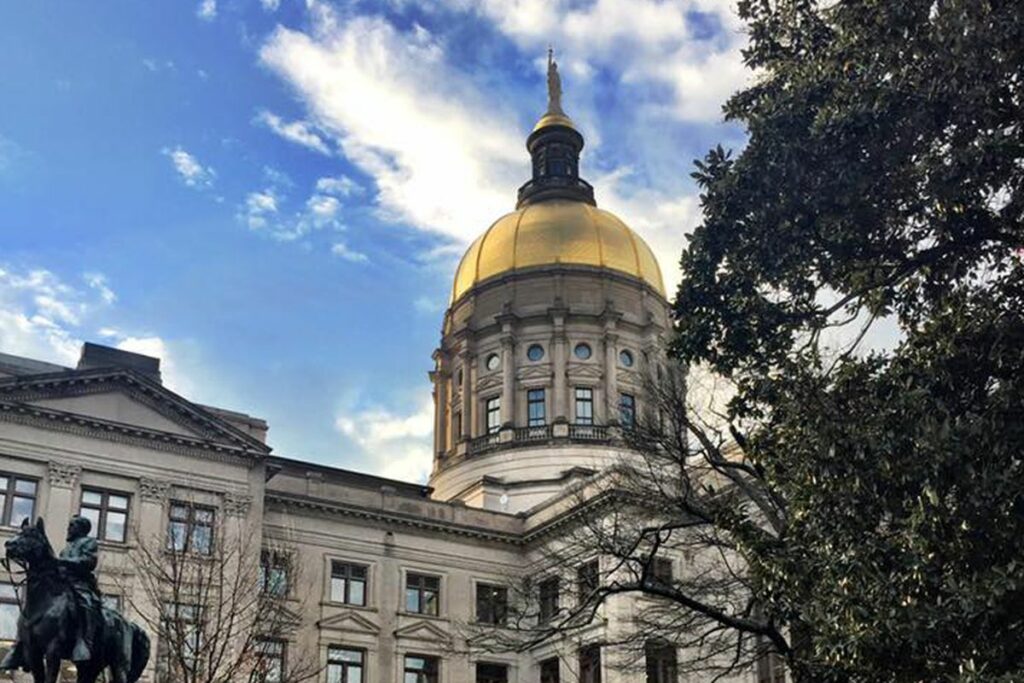
ATLANTA – There will be a lot of new faces in the General Assembly come next January.
But the breakdown between majority Republicans and minority Democrats may not change much.
Twelve of the 56 Georgia senators are not seeking reelection this fall, while 54 of the 180 members of the state House of Representatives aren’t running for another two-year term under the Gold Dome.
That’s an unusually large amount of turnover, driven in part by the ambitions of lawmakers leaving their seats to seek statewide office in positions including lieutenant governor, attorney general and secretary of state. But many others simply have had their fill of the job.
“It was a combination of having been there awhile and the demands of the job, the sacrifices of being away from homes and businesses,” said House Speaker David Ralston, R-Blue Ridge.
At the same time, high turnover in the General Assembly is being accompanied by a larger than usual number of contested races for legislative seats.
In the House, contests for 87 of the 180 seats feature at least one Republican and one Democrat. The ratio is nearly the same in the Senate, where at least one candidate from each of the two major parties is on the ballot in 27 of 56 races.
Charles Bullock, a political science professor at the University of Georgia, attributes the large number of contested races to the once-per-decade redrawing of legislative maps to accommodate changes in population reflected in the U.S. Census.
The legislature’s Republican majority made major changes to many House and Senate districts, forcing incumbents to court lots of new constituents on the campaign trail while encouraging newcomers to jump into the fray.
“Especially in a district that has swapped some population in and out, parts of the district would be like an open seat,” Bullock said.
In the immediate aftermath of the General Assembly’s redistricting special session last November, the consensus among Georgia political observers was that the new maps put Democrats in a position to gain up to six seats in the House and pick up at least one seat in the Senate. While Republicans were in control of drawing the new districts, growing minority populations in suburban Atlanta were expected to help Democrats gain ground.
“The changing population is spreading further out of Atlanta, putting some districts in Gwinnett [County] and North Fulton up for grabs,” Bullock said. “Democrats came close to winning them in 2018 and 2020.”
“We are optimistic about potential gains in the Senate,” Monica Fambrough, spokeswoman for the Georgia Senate Democratic Caucus, added in an e-mail. “We do expect to pick up at least two seats, and we are going to be competing in several districts where we see a path for gains in the future.”
Fambrough pointed to Senate Districts 6, 7, 14 and 48 in Atlanta’s northern suburbs as competitive districts where the Democrats have fielded strong candidates.
Even if those gains are realized, Republicans still would remain in control of the General Assembly. The GOP now holds 34 Senate seats to 22 for the Democrats, while the House includes 103 Republican members and 77 Democrats.
On the House side, Ralston said he’s not buying that Democrats will gain six seats.
“We’re a competitive state now because of the changing demographics. We get that as Republicans,” he said. “[But] I think [a six-seat pickup] is a real reach for them. I expect we’ll end up pretty close to where we are now. We may pick up one or two [seats].”
Ralston said Republicans will be able to talk on the campaign trail about a strong list of accomplishments during the recently concluded General Assembly session, including an overhaul of Georgia’s mental health system, a tax cut and an economy that has remained strong despite the pandemic, outperforming other states.
“We were the last to close and the first to reopen,” he said. “That put us in a good position economically.”
Democrats supported the mental health bill, but most voted against the Republicans’ other priorities. Democratic candidates will tell voters Republicans have made Georgia less safe by allowing the carrying of concealed firearms without a permit and are threatening their voting rights by empowering the Georgia Bureau of Investigation to look into complaints of election fraud on its own.
This story is available through a news partnership with Capitol Beat News Service, a project of the Georgia Press Educational Foundation.